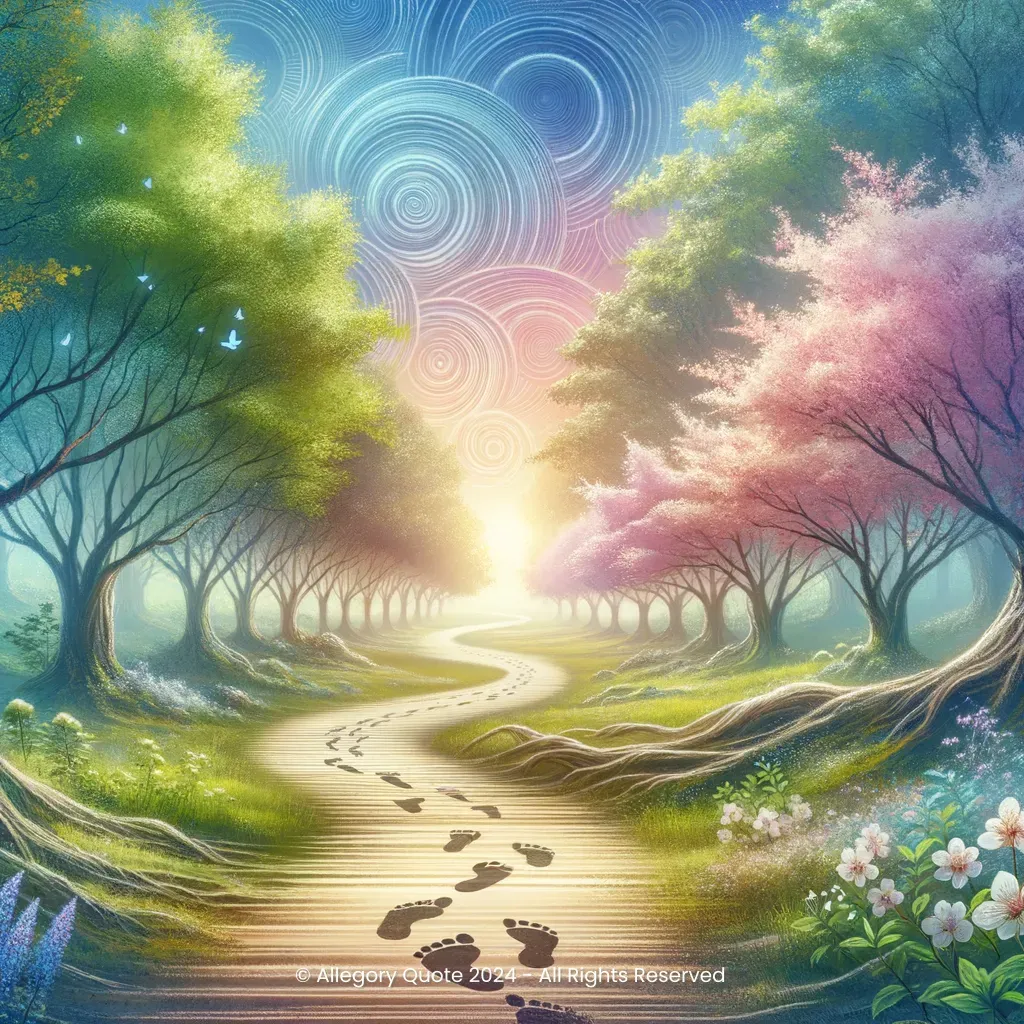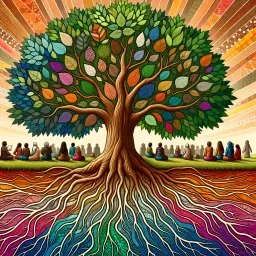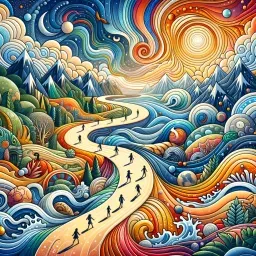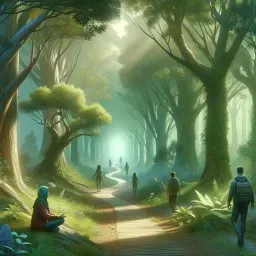”No one can go through life,
just as no one can cross a field in the countryside,
without leaving traces behind, and those traces may be
useful to those who come after to find their way“

- Meaning
- The meaning of this phrase lies in the awareness of individual responsibility. Each person, with their actions and choices, contributes to weaving the large tapestry of human existence. Philosophically, this implies recognition of the connections between individuals and generations. Psychologically, it emphasizes the importance of collective memory and legacy, both cultural and personal, left for those to come. This phrase invites reflection on the importance of living with intensity and awareness, as every gesture has the power to influence the future.
- Allegory
- In the allegorical image, the path represents the journey of life. The footprints symbolize each individual's choices and experiences, highlighting the lasting impact of our actions on others. The blooming trees symbolize growth and connection with others, while the bright sky represents the possibilities and hopes for the future. This visual composition unites all elements to reflect the message of how each person can, through their traces, illuminate the path for others.
- Applicability
- The meaning of this phrase can be applied in daily life in various ways: considering one's actions as capable of influencing and guiding others, and recognizing that every decision, big or small, has an impact. It can encourage us to reflect on our personal legacy and the traces we leave in the world, valuing ethical and responsible behavior that will benefit future generations.
- Impact
- The phrase had an impact on literature and culture in the late 1800s and early 1900s, contributing to a thought that combines spirituality and pragmatism. Gibran's works continue to inspire holistic and humanistic thought movements, and this phrase is often quoted in contexts of personal growth and conscious living.
- Historical Context
- It's not possible to pinpoint a specific year for this phrase as part of a single work by Gibran, but it likely comes from his writing period around the 1920-1930s, a context where he explored the meaning of life and human relationships. Gibran wrote during a transitional period for the Arab world, marked by profound social and cultural transformations, and often dealt with universal themes related to the human condition.
- Criticisms
- There have been no significant criticisms specifically of this phrase, as it aligns well with principles of personal and community responsibility. However, questions might be raised about how the traces left can also be negative or harmful, opening a debate about legacy and collective actions in the contemporary world.
- Variations
- Variations of this concept exist in other cultures, such as the principle of karma in Eastern traditions, which expresses the idea that actions in this life will influence future lives. Every culture, despite its specificities, tends to highlight the importance of choices and their consequences.
-

I do not ask for riches, nor hopes, nor love, nor a friend who understands me; all I ask for is the sky above me and a road beneath my feet.
-

The distance doesn't matter; it's the first step that is difficult.
-

Life flows and opens paths that are never walked in vain. But no one can freely play on that path, because it delays or diverts the atomic and general journey.
-

I am part of all that I have found on my path.
-

The most important thing in life is choosing a direction and forgetting the others.
-

Our battered suitcases were piled on the sidewalk again; we had longer ways to go. But no matter, the road is life.
-

Life is an experimental journey, undertaken involuntarily.
-

There are paths without travelers. But there are even more travelers who do not have their paths.
-

You cannot reach the dawn without passing through the paths of the night.
No Comments